
Copernical Team
Voyager will do more science with new power strategy
 Launched in 1977, the Voyager 2 spacecraft is more than 12 billion miles (20 billion kilometers) from Earth, using five science instruments to study interstellar space. To help keep those instruments operating despite a diminishing power supply, the aging spacecraft has begun using a small reservoir of backup power set aside as part of an onboard safety mechanism. The move will enable the missio
Launched in 1977, the Voyager 2 spacecraft is more than 12 billion miles (20 billion kilometers) from Earth, using five science instruments to study interstellar space. To help keep those instruments operating despite a diminishing power supply, the aging spacecraft has begun using a small reservoir of backup power set aside as part of an onboard safety mechanism. The move will enable the missio Framework for NASA's Roman spacecraft moves to Goddard clean room
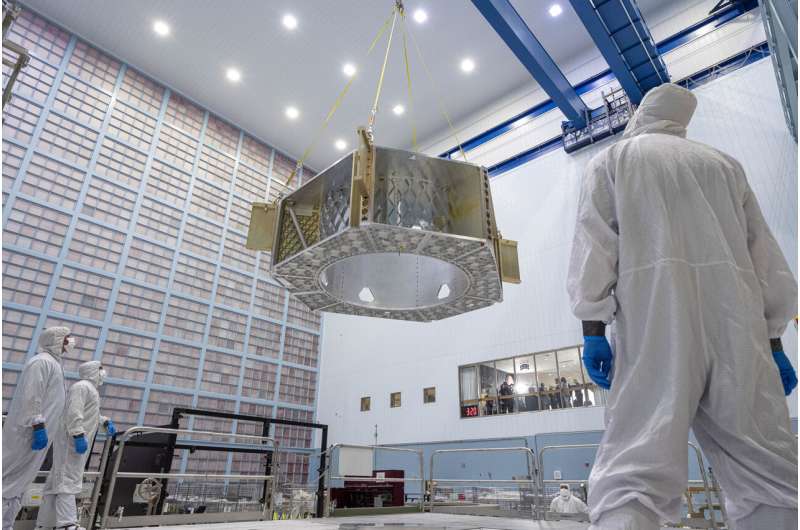
Research helps pave way for first manned mission to Mars
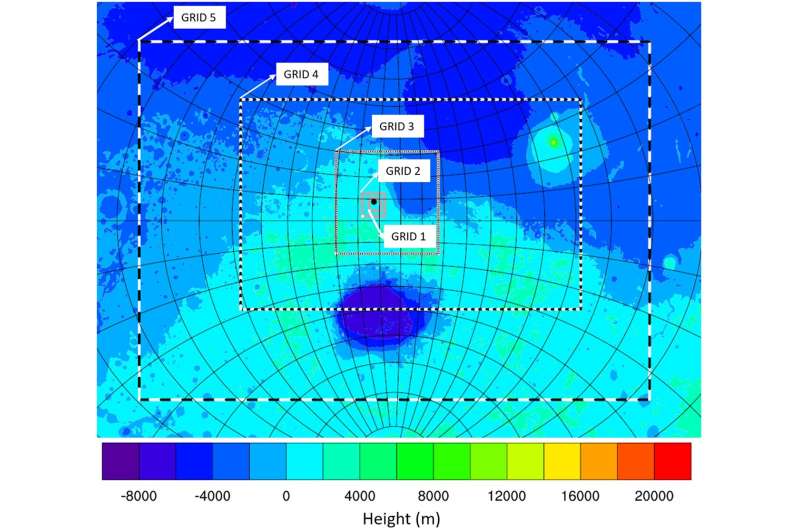
Scientists have greater insight into the atmospheric conditions on Mars than ever before following an international research project involving the University of Huddersfield. The findings of the project will help them identify safe landing sites with increased accuracy, and further paves the way for the first manned mission to the red planet.
One of the researchers on the project is Dr. Thomas Smyth, a Senior Lecturer in Physical Geography within the Department of Biological and Geographical Sciences in the School of Applied Sciences.
Alongside researchers from Ulster University, California Institute for Technology (Caltech) and the University of Wisconsin Madison in the U.S., the research has discovered a more informed and realistic Computational Fluid Dynamics (CFD) microscale modeling method, which will provide more detailed insight into the surface wind forcing of aeolian transport patterns on Martian surfaces such as dunes.
ESA recruits for Director of Connectivity and Secure Communications and Director of Internal Services
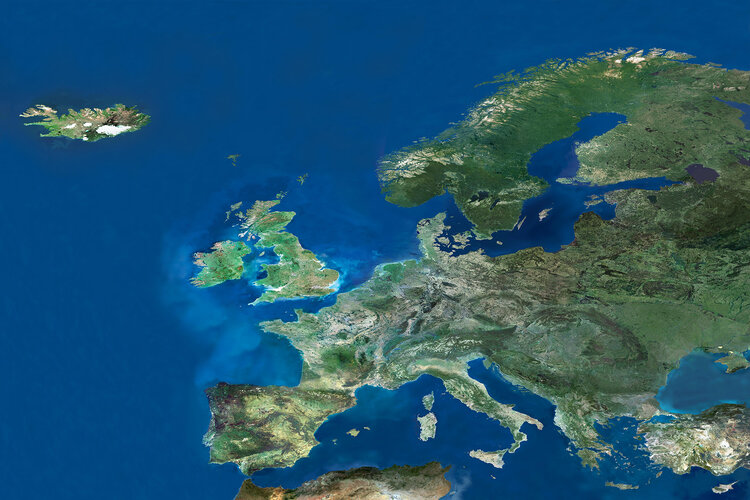
The European Space Agency is currently looking for a new Director of Connectivity and Secure Communications and new Director of Internal Services to join its executive board and support the Director General, with responsibility for relevant ESA activities and overall objectives.
Juice’s first taste of science from space
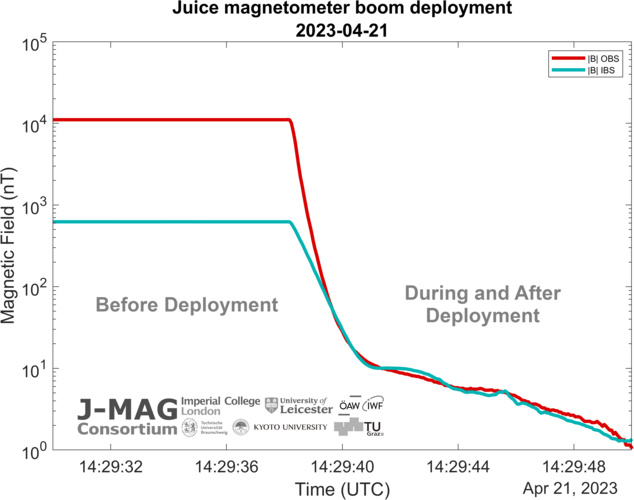 Image:
Juice’s first taste of science from space
Image:
Juice’s first taste of science from space CryoSat reveals ice loss from glaciers
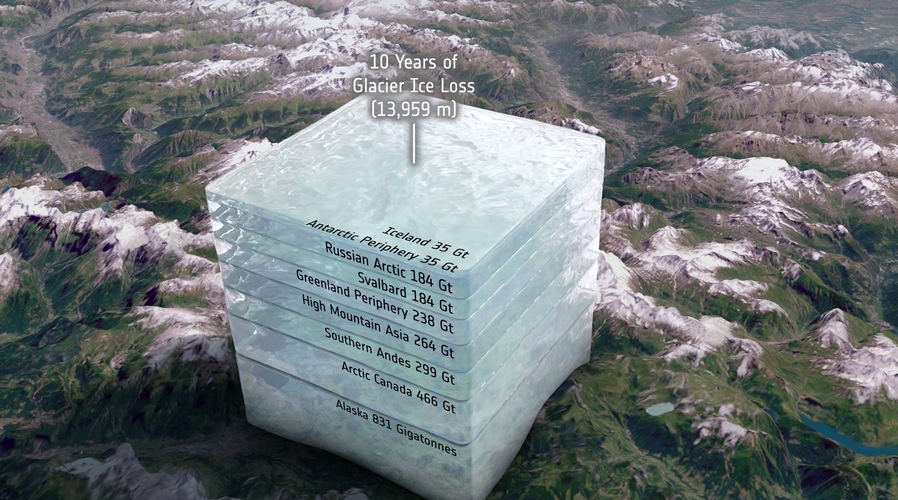
When one thinks of the damage that climate change is doing, it’s probable that what comes to mind is a vision of huge lumps of ice dropping off one of the polar ice sheets and crashing into the ocean. While Greenland and Antarctica are losing masses of ice, so too are most of the glaciers around the world, but it’s tricky to measure how much ice they are shedding.
Thanks to ESA’s CryoSat satellite and a breakthrough way of using its data, scientists have discovered that glaciers worldwide have shrunk by a total of 2%
Hard landing: Japan firm fails in historic Moon bid

A Japanese startup attempting the first private landing on the Moon said Wednesday it had lost communication with its spacecraft and assumed the lunar mission had failed.
Ispace said that it could not establish communication with the unmanned Hakuto-R lunar lander after its expected landing time, a frustrating end to a mission that began with a launch from the United States over four months ago.
"We have not confirmed communication with the lander," a company official told reporters about 25 minutes after the expected landing.
"We have to assume that we could not complete the landing on the lunar surface," the official said.
Officials said they would continue to try and establish contact with the spacecraft, which was carrying payloads from several countries, including a lunar rover from the United Arab Emirates.
Ispace founder and CEO Takeshi Hakamada said after the apparent failed landing that they had acquired data from the spacecraft all the way up to the planned landing and would be examining that for signs of what happened.
Japanese company: 'High probability' lander crashed on moon
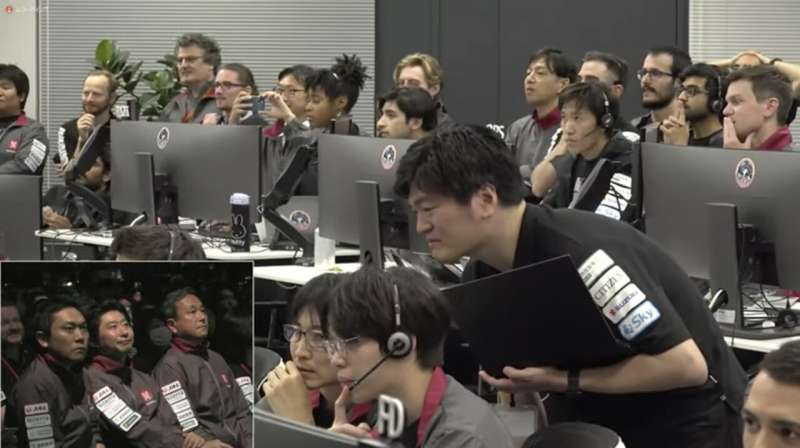
A Japanese company's spacecraft apparently crashed while attempting to land on the moon Wednesday, losing contact moments before touchdown and sending flight controllers scrambling to figure out what happened.
How security in space helps Europe to cope with crises on Earth
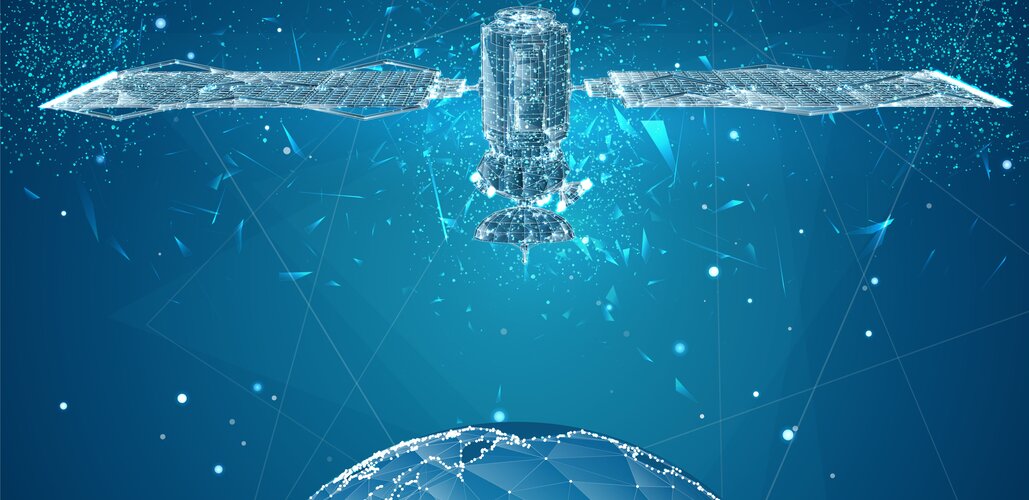
Keeping information and infrastructure secure is essential in a proposed rapid and resilient space-based system that will enable European governments to respond to crises caused by climate change as well as malicious attacks on power supplies and other vital services.
Russian cosmonauts delay ISS spacewalk
 Russian cosmonauts have delayed a spacewalk to move one of the airlock systems aboard the International Space Station from one module to another.
The delay was announced by Russia's state space exploration company Roscosmos Monday.
In a statement on Telegram, Roscosmos said the extravehicular activity "was postponed, tentatively, to the beginning of May due to the need for a more
Russian cosmonauts have delayed a spacewalk to move one of the airlock systems aboard the International Space Station from one module to another.
The delay was announced by Russia's state space exploration company Roscosmos Monday.
In a statement on Telegram, Roscosmos said the extravehicular activity "was postponed, tentatively, to the beginning of May due to the need for a more 